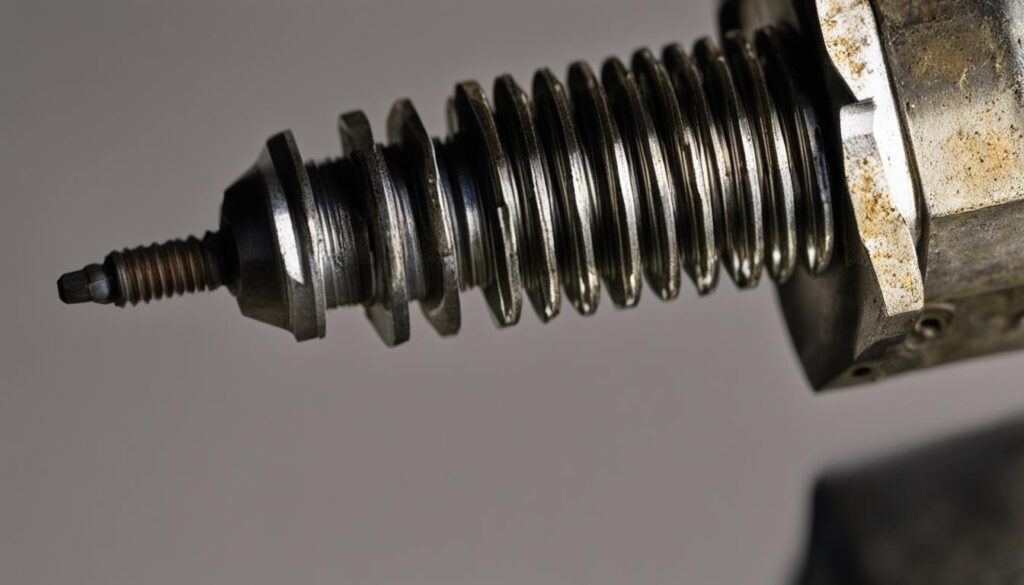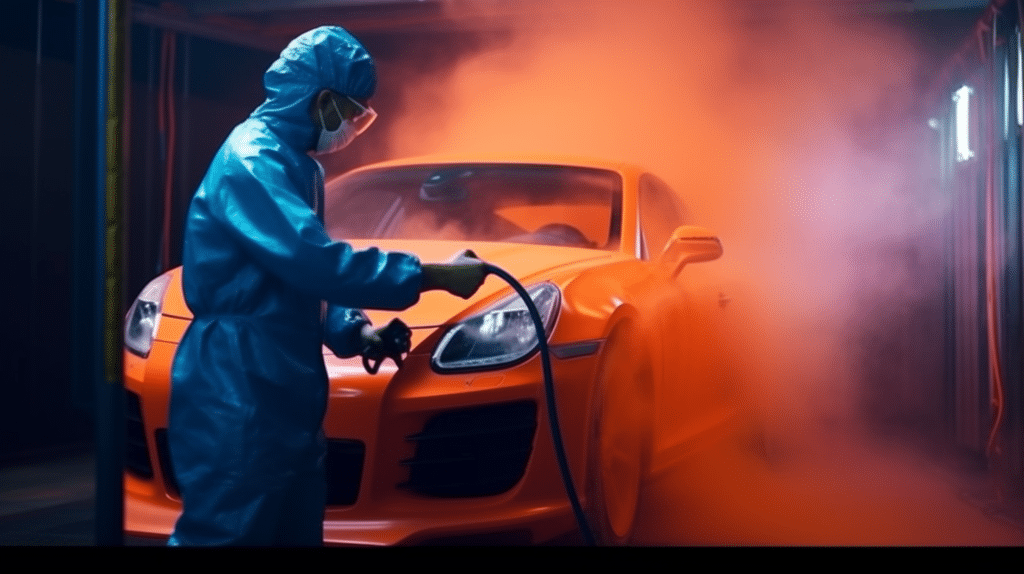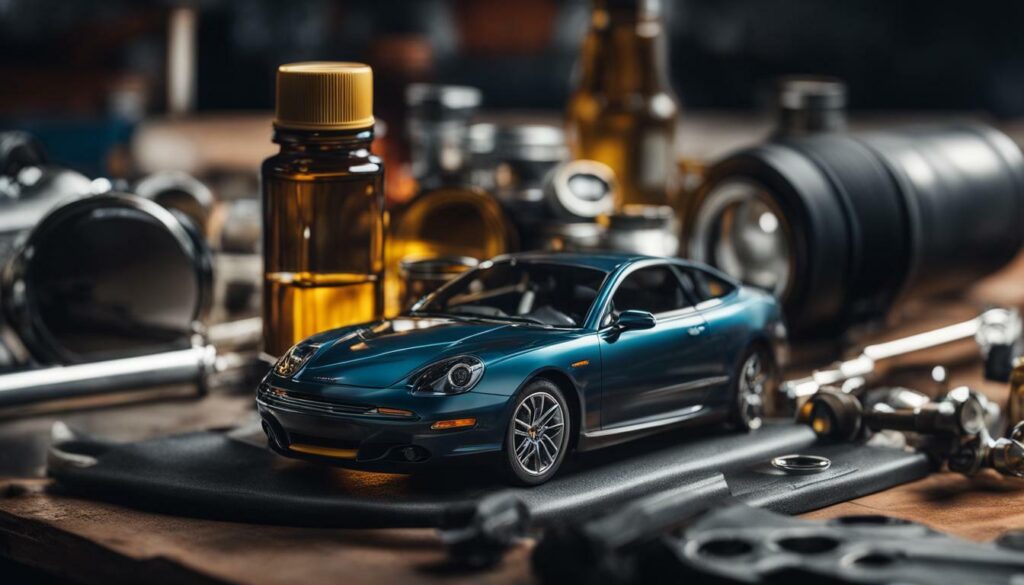Are you experiencing car shaking when idle or noticing vibrations when your vehicle is stopped? If so, you’re not alone. Many drivers have encountered this issue, and it can be quite unsettling. But don’t worry, I’m here to help you understand why your car is shaking when idle and what you can do to fix it.
There are several potential causes for a car shaking when idle, ranging from minor issues to more serious engine problems. Common culprits include dirty fuel injectors, worn spark plugs and ignition coils, clogged air filters, vacuum leaks, faulty oxygen sensors, and weak or broken motor mounts. Each of these issues can disrupt the smooth operation of your engine, leading to vibrations and shaking when your car is at idle.
If your car is experiencing a rough idle and shaking, it’s important to address the problem promptly. Ignoring it could result in further damage to your engine and potentially lead to more expensive repairs down the line. Fortunately, many of the causes of a rough idle are relatively easy to fix, either through regular maintenance or with the help of a professional technician.
In the upcoming sections, I will dive deeper into the causes of car shaking when idle, explore the symptoms of rough idling, and provide practical solutions to resolve the issue. By understanding the root causes and taking appropriate action, you can enjoy a smoother, more comfortable ride.
Key Takeaways:
- Car shaking when idle can be caused by various factors such as dirty fuel injectors, worn spark plugs, clogged air filters, vacuum leaks, faulty oxygen sensors, and weak or broken motor mounts.
- Addressing a rough idle promptly is important to prevent further damage to the engine and ensure optimal performance.
- Regular maintenance, including spark plug replacement, fuel injector cleaning, and air filter replacement, can help prevent rough idling and shaking.
- If you are experiencing car shaking when idle, it is recommended to have a professional technician diagnose and repair the issue.
What is a Rough Idle and Why Does it Happen?
A rough idle refers to the shaking or vibration of a car’s engine when it is running at idle speed. It is an indication that there is a problem with the engine or its components. When a car is idling, the engine’s RPM (revolutions per minute) should be stable. However, if the RPMs fall below or are increasingly higher than normal, the car may exhibit rough idling. This can be accompanied by noticeable vibrations throughout the vehicle.
In most cases, rough idling is a symptom of an underlying issue with the car’s fuel system, ignition system, air intake system, or engine sensors. These problems can disrupt the smooth combustion process and result in the engine running unevenly at idle.
Common causes of rough idling include:
- Dirty or clogged fuel injectors: Over time, fuel injectors can become clogged with deposits, affecting the proper delivery of fuel to the engine.
- Worn spark plugs and ignition coils: As spark plugs and ignition coils wear out, they can cause misfires in the engine, leading to rough idling.
- Clogged air filters: A clogged air filter restricts the airflow to the engine, disrupting the air-fuel mixture and causing rough idling.
- Vacuum leaks: Any leaks in the vacuum system can result in an imbalanced air-fuel mixture, leading to rough idling.
- Faulty oxygen sensors: Oxygen sensors help regulate the air-fuel ratio in the engine. If they are malfunctioning, the engine may experience rough idling.
“It is important to address a rough idle promptly to prevent further damage to the engine and ensure optimal performance.”
To determine the exact cause of a rough idle, it is recommended to consult a professional technician who can perform a thorough inspection of the vehicle. They may use diagnostic tools to check for error codes and perform tests on different components of the engine.
Once the cause of the rough idle is identified, appropriate repairs or replacements can be made. Regular maintenance, such as cleaning fuel injectors, replacing spark plugs, and changing air filters, can help prevent rough idling and maintain smooth engine operation.
Benefits of Resolving Rough Idle:
“Resolving a rough idle not only improves the comfort of the driving experience, but it also helps to prevent further damage to the engine. By addressing underlying issues, the longevity and performance of the car can be preserved.”
Summary of Rough Idle Causes:
| Cause | Description |
|---|---|
| Dirty or clogged fuel injectors | Obstructed fuel injectors disrupt proper fuel delivery. |
| Worn spark plugs and ignition coils | Malfunctioning spark plugs and ignition coils lead to misfires. |
| Clogged air filters | Restricted airflow affects the air-fuel mixture. |
| Vacuum leaks | Leaks in the vacuum system cause an imbalanced mixture. |
| Faulty oxygen sensors | Malfunctioning sensors affect the air-fuel ratio. |
Common Causes of Car Shaking When Idle
When a car shakes or vibrates when it is idling, it can be concerning and indicate an underlying issue. Understanding the common causes of this problem can help diagnose and resolve it effectively.
Dirty or Clogged Fuel Injectors
Dirty or clogged fuel injectors can disrupt the fuel spray pattern, leading to inefficient combustion and engine imbalance. This can result in the car shaking when it is idle. Regularly cleaning or replacing the fuel injectors can improve fuel flow and reduce vibrations.
Worn Spark Plugs and Ignition Coils
Worn spark plugs and ignition coils can cause misfires in the engine, resulting in rough idling and shaking. Replacing spark plugs and addressing ignition coil issues can help maintain smooth engine operation and reduce idle vibrations.
Clogged Air Filters
A clogged air filter restricts airflow to the engine, causing an imbalanced fuel mixture and rough idling. Regularly replacing the air filter improves air intake, reducing shaking or vibration when the car is at idle.
Vacuum Leaks
Vacuum leaks disrupt the air-fuel mixture and engine combustion, leading to rough idling and shaking. It is important to inspect and replace any worn or damaged vacuum hoses to resolve this issue and improve engine performance.
Faulty Oxygen Sensors
Faulty oxygen sensors can cause the engine to run too rich or too lean, resulting in rough idling and shaking. Replacing the oxygen sensors helps maintain the proper air-fuel ratio and reduces vibrations at idle.
Weak or Broken Motor Mounts
Motor mounts keep the engine secure and stable. When motor mounts are weak or broken, the engine can shift and cause the car to shake when idle. Replacing motor mounts stabilizes the engine and reduces vibrations at idle.
| Common Causes | Symptoms |
|---|---|
| Dirty or Clogged Fuel Injectors | Rough idling, engine misfires, decreased fuel efficiency |
| Worn Spark Plugs and Ignition Coils | Misfires, decreased engine power, rough idling |
| Clogged Air Filters | Rough idling, decreased acceleration, reduced power |
| Vacuum Leaks | Uneven engine idle, rough running, stalling |
| Faulty Oxygen Sensors | Decreased fuel efficiency, rough idling, check engine light |
| Weak or Broken Motor Mounts | Engine movement, excessive vibration, shaking at idle |
Dirty Fuel Injectors
One of the common reasons for a car shaking when idle is dirty fuel injectors. Over time, fuel injectors can become clogged with carbon deposits, disrupting the proper fuel spray pattern and causing rough idling. When the fuel spray is uneven, the engine may not receive the correct amount of fuel, leading to inefficient combustion and vibrations at idle.
Having dirty fuel injectors can impact the overall performance of your vehicle. It can result in reduced fuel efficiency, decreased power, and increased emissions. Therefore, it’s essential to address this issue promptly to restore proper fuel flow and combustion.
To resolve the problem of dirty fuel injectors, you have two options:
- Cleaning the fuel injectors: This involves using a specialized fuel injector cleaner that helps remove carbon deposits and restore the injectors’ functionality. Fuel injector cleaning additives can be added to the fuel tank during regular fill-ups to clean the fuel injectors gradually.
- Replacing the fuel injectors: If the fuel injectors are severely clogged or damaged, cleaning may not be sufficient. In such cases, it may be necessary to replace the fuel injectors with new ones. A professional technician or mechanic can assess the condition of the fuel injectors and recommend the best course of action.
Regular maintenance and fuel injector cleaning can help prevent the accumulation of carbon deposits and ensure smooth engine operation. It’s important to follow the manufacturer’s recommendations for fuel injector cleaning intervals to maintain optimal performance.
Benefits of Fuel Injector Cleaning
Fuel injector cleaning offers several benefits, including:
- Improved fuel efficiency: Clean fuel injectors allow for better fuel atomization and distribution, improving fuel efficiency and saving you money at the pump.
- Smooth engine performance: Properly functioning fuel injectors ensure a consistent fuel mixture and combustion, resulting in smooth engine operation and reduced vibrations at idle.
- Enhanced engine longevity: By maintaining clean fuel injectors, you reduce the risk of carbon buildup that can lead to engine damage or component failure.
- Reduced emissions: Clean fuel injectors help achieve optimal combustion, resulting in reduced emissions and a positive environmental impact.
- Restored power and performance: When the fuel injectors are clean, the engine can achieve its full power potential, resulting in improved acceleration and overall performance.
Regular fuel injector cleaning is an essential part of vehicle maintenance. It helps ensure the proper functioning of the fuel delivery system and prevents issues like rough idling, reduced performance, and increased fuel consumption.
| Fuel Injector Cleaning Methods | Pros | Cons |
|---|---|---|
| DIY Fuel Injector Cleaning Additives |
|
|
| Professional Fuel Injector Cleaning Services |
|
|
Worn Spark Plugs and Ignition Coils
Problems with worn spark plugs and ignition coils can contribute to misfires in the engine, resulting in rough idling and shaking. It is important to address these issues promptly to maintain a smooth engine operation and reduce vibrations at idle.
Spark plugs play a vital role in providing the necessary spark to ignite the fuel mixture in the combustion chamber. Over time, spark plugs can become worn and lose their effectiveness, causing misfires and a rough idle. Regularly replacing spark plugs, as recommended by the manufacturer, can help ensure optimal engine performance.
“Worn spark plugs can cause misfires, leading to rough idling and shaking.”
In addition to worn spark plugs, problems with the ignition coils can also contribute to engine misfires. The ignition coil is responsible for converting battery voltage into the high voltage needed to spark the spark plugs. If the ignition coil is faulty or damaged, it may not provide sufficient voltage, resulting in inconsistent sparks and misfires.
Addressing ignition coil problems may involve replacing the faulty coil or coils. It is important to diagnose the specific issue with the help of a professional technician to ensure an accurate repair.
By regularly replacing spark plugs and addressing issues with ignition coils, you can proactively prevent misfires, maintain smooth engine operation, and reduce vibrations when the car is at idle.

Clogged Air Filters
One of the common causes of a car shaking when idle is a clogged air filter. The air filter plays a crucial role in the air intake system of the engine. Its primary function is to prevent dirt, dust, and debris from entering the engine and ensure that clean air is delivered for combustion.
However, over time, the air filter can become clogged with dirt, restricting the airflow to the engine. When the airflow is restricted, the fuel mixture becomes imbalanced, resulting in rough idling and shaking of the car.
Regularly replacing the air filter is essential to maintain optimal engine performance and prevent rough idling. By replacing the clogged air filter with a new one, you can ensure proper air intake, improve combustion efficiency, and alleviate shaking or vibration when the car is at idle.
How to Replace an Air Filter?
Replacing an air filter is a relatively simple task that can be done without professional assistance. Below, I have outlined the steps to help you replace your air filter:
- Locate the air filter housing: The air filter housing is typically located on top of the engine and is connected to the air intake system. Refer to your vehicle’s manual if you are unsure where it is located.
- Open the air filter housing: Use a screwdriver or release the clips to open the housing and access the air filter.
- Remove the old air filter: Carefully remove the old air filter from the housing, taking note of its orientation.
- Inspect the housing: While the air filter is removed, take a quick look at the housing to ensure it is free from debris or obstructions.
- Install the new air filter: Insert the new air filter into the housing, making sure it is facing the correct direction as indicated by the arrow or instructions on the filter.
- Close the air filter housing: Secure the housing by tightening the screws or clipping it back into place.
By following these steps, you can easily replace your clogged air filter and help prevent rough idling and shaking of your car’s engine.
To give you a better idea of the benefits of replacing a clogged air filter, here is a table comparing the effects of a clogged air filter and the advantages of air filter replacement:
| Effects of Clogged Air Filter | Advantages of Air Filter Replacement |
|---|---|
| Imbalanced fuel mixture | Improved combustion efficiency |
| Restricted airflow | Enhanced engine performance |
| Rough idling and shaking | Reduced vibrations at idle |
Regularly replacing the air filter is a simple yet effective way to maintain the health of your car’s engine and prevent issues like rough idling. By ensuring proper air intake and a balanced fuel mixture, you can enjoy a smooth and comfortable ride even when your car is idle.
Vacuum Leaks
One common cause of car shaking when idle is vacuum leaks. Vacuum leaks occur when there are cracks or holes in the vacuum hoses, which disrupt the air-fuel mixture and engine combustion. These leaks can result in rough idling and shaking sensations.
Signs of Vacuum Leaks
- Erratic or high idle speed
- Poor acceleration
- Stalling or difficulty starting the engine
- Check engine light illuminated
Inspecting the vacuum hoses is essential to identify and resolve any leaks. Look for cracks, holes, or disconnected hoses. If any issues are found, it’s important to replace the damaged vacuum hoses promptly.
Quote from Expert:
“Vacuum leaks can significantly affect the engine performance, leading to rough idling and poor fuel efficiency. Addressing vacuum leaks by replacing worn or damaged hoses is crucial to ensure smooth engine operation and reduce shaking when the car is at idle.” – Dr. Car Expert
Regular maintenance and inspection of the vacuum hoses can help prevent vacuum leaks and ensure optimal engine performance. If you suspect vacuum leaks as the cause of the car shaking when idle, consider seeking professional assistance to accurately diagnose and resolve the issue.
| Vacuum Leaks | Potential Symptoms |
|---|---|
| Cracks or holes in vacuum hoses | Rough idling |
| Disconnected vacuum hoses | Stalling or difficulty starting |
| Defective intake manifold gasket | Erratic or high idle speed |
Faulty Oxygen Sensors
One of the common culprits behind a car shaking when idle is faulty oxygen sensors. These sensors play a crucial role in maintaining the proper air-fuel ratio in the engine. When oxygen sensors malfunction, they can cause the engine to run too rich (excess fuel) or too lean (insufficient fuel).
A rich fuel mixture can lead to rough idling and shaking due to incomplete combustion and the production of excessive emissions. On the other hand, a lean fuel mixture can result in a lack of power, engine misfires, and increased engine temperature.
To address the issue of faulty oxygen sensors and restore smooth idling, it is recommended to replace the malfunctioning sensors. Oxygen sensor replacement is a relatively straightforward process and can be done by a professional technician or even by DIY enthusiasts.
By replacing the faulty oxygen sensors, the air-fuel ratio can be effectively regulated, improving engine performance, reducing vibrations at idle, and ensuring optimal engine emissions.
Replacing the oxygen sensors not only helps resolve the shaking issue but also contributes to better fuel efficiency and reduced environmental impact. By maintaining the correct air-fuel ratio, the engine can operate more efficiently, which results in reduced fuel consumption and lower engine emissions.
Weak or Broken Motor Mounts
Motor mounts play a crucial role in ensuring the stability of an engine. When these mounts are weak or broken, it can result in engine shifting and lead to the car shaking when idle. To address this issue, motor mount replacement is necessary to stabilize the engine and reduce vibrations at idle.
The function of motor mounts is to hold the engine firmly in place, preventing excessive movement and dampening vibrations. However, over time, the motor mounts can deteriorate or become damaged due to wear and tear or external factors such as harsh driving conditions or accidents.
When the motor mounts weaken or break, the engine loses proper support, causing it to move excessively during operation. This movement transfers to the rest of the vehicle, resulting in noticeable shaking or vibrations, especially when the car is at idle.
Replacing weak or broken motor mounts is essential to restore the engine’s stability and resolve the shaking issue. A professional technician can inspect the motor mounts and determine if they need replacement. By installing new motor mounts, the engine will be securely held in place, reducing vibrations and providing a smoother idle experience.
If you suspect weak or broken motor mounts are causing your car to shake when idle, it is important to have them inspected and replaced as soon as possible. Ignoring this issue can lead to further damage to the engine or other components of the vehicle.

When it comes to motor mount replacement, it is recommended to consult with a qualified technician who has experience in handling such repairs. They will have the expertise and knowledge to ensure proper installation and alignment of the new motor mounts.
In summary, weak or broken motor mounts can be a common cause of car shaking when idle. By addressing these issues through motor mount replacement, the engine’s stability can be restored, reducing vibrations and providing a smoother idle.
Professional Diagnosis and Repair
If you are experiencing a car shaking when idle, it is crucial to seek professional diagnosis and repair to address the issue effectively. A trained technician has the expertise and tools necessary to perform a thorough inspection and identify the underlying cause of the rough idle.
During the inspection process, the technician will meticulously test various components of your car, including the throttle position sensor, mass airflow sensor, idle air control valve, and engine coolant temperature sensor. These tests help in assessing the overall health and functionality of your car’s engine, allowing for a precise diagnosis.
Once the exact cause of the rough idle has been determined, the technician will recommend the necessary repairs or replacements to resolve the shaking issue. Whether it involves cleaning or replacing clogged fuel injectors, replacing worn spark plugs, addressing vacuum leaks, or replacing faulty oxygen sensors, your technician will ensure that all necessary steps are taken to restore your car’s smooth idle.
Engaging a professional not only ensures that the correct problem is identified and addressed, but it also minimizes the risk of further damage that could result from improper troubleshooting or repairs.
Benefits of Professional Diagnosis and Repair:
- Avoidance of costly mistakes
- Accurate identification of the root cause
- Use of specialized tools and equipment
- Access to technical expertise and diagnostic resources
- Quality repairs or replacements
- Peace of mind knowing the issue is resolved effectively
“Seeking professional diagnosis and repair for your car shaking when idle ensures accurate identification of the root cause and efficient resolution, providing you with a smooth and reliable driving experience.”
| Component | Test | Findings |
|---|---|---|
| Throttle Position Sensor | Inspect voltage readings at various throttle positions | Presence of irregular readings, indicating a malfunctioning sensor |
| Mass Air Flow Sensor | Measure airflow readings | Low or high airflow readings, suggesting a faulty sensor |
| Idle Air Control Valve | Check for proper functioning at idle | Inconsistent or inadequate control of idle airflow, indicating a damaged valve |
| Engine Coolant Temperature Sensor | Assess temperature readings | Abnormal temperature readings, suggesting a faulty sensor |
Through systematic testing of these components, a professional technician can pinpoint the specific issue causing your car to shake when idle. This ensures that the correct repairs or replacements are performed, restoring your car’s smooth idle and overall performance.
Conclusion
In summary, experiencing a car shaking when idle is a common issue that can be caused by various factors. To ensure a smooth and comfortable ride, it is crucial to address this problem promptly. Regular maintenance and preventive measures can help prevent rough idling and shaking.
Some of the common causes of car shaking when idle include dirty fuel injectors, worn spark plugs and ignition coils, clogged air filters, vacuum leaks, faulty oxygen sensors, and weak or broken motor mounts. By regularly replacing spark plugs, cleaning fuel injectors, and replacing air filters, you can mitigate the risk of rough idling and shaking.
If you are currently experiencing a car shaking when idle, it is advisable to seek professional assistance from a technician. They have the expertise to diagnose the issue accurately and perform the necessary repairs or replacements. Prompt action will not only prevent further damage to your engine but also ensure a smoother driving experience.
FAQ
What is a rough idle, and why does it happen?
A rough idle refers to the shaking or vibration of a car’s engine when it is running at idle speed. It is an indication that there is a problem with the engine or its components. Common causes of rough idling include issues with the fuel system, ignition system, air intake system, or engine sensors.
What are the common causes of car shaking when idle?
Common causes of a car shaking when idle include dirty or clogged fuel injectors, worn spark plugs and ignition coils, clogged air filters, vacuum leaks, faulty oxygen sensors, and weak or broken motor mounts. These issues can lead to inefficient fuel combustion, misfires, and imbalance in the engine, resulting in the shaking or vibration when the car is at idle.
How do dirty fuel injectors contribute to car shaking when idle?
Over time, fuel injectors can become clogged with carbon deposits, which can disrupt the proper fuel spray pattern and result in rough idling. Cleaning or replacing the fuel injectors can help restore proper fuel flow and combustion, reducing or eliminating the shaking when the car is at idle.
How do worn spark plugs and ignition coils cause car shaking when idle?
Worn spark plugs and ignition coils can cause misfires in the engine, leading to rough idling and shaking. Regularly replacing spark plugs and addressing issues with ignition coils can help maintain smooth engine operation and reduce idle vibrations.
Are clogged air filters a common cause of car shaking when idle?
Yes, a clogged air filter restricts airflow to the engine, causing the fuel mixture to become imbalanced and resulting in rough idling. Regularly replacing the air filter can improve air intake and alleviate shaking or vibration when the car is at idle.
How do vacuum leaks contribute to car shaking when idle?
Vacuum leaks can disrupt the air-fuel mixture and engine combustion, leading to rough idling and shaking. Inspecting and replacing any worn or damaged vacuum hoses can help resolve this issue and improve engine performance.
Can faulty oxygen sensors cause car shaking when idle?
Yes, faulty oxygen sensors can cause the engine to run too rich or too lean, leading to rough idling and shaking. Replacing the oxygen sensors can help maintain the proper air-fuel ratio and reduce vibrations at idle.
How do weak or broken motor mounts contribute to car shaking when idle?
Motor mounts keep the engine securely in place. If they are weak or broken, the engine can shift and cause the car to shake when idle. Replacing the motor mounts can help stabilize the engine and reduce vibrations at idle.
Should I have a professional diagnose and repair the car shaking when idle issue?
Yes, if you are experiencing a car shaking when idle, it is recommended to have a professional technician diagnose and address the issue. They will be able to perform a thorough inspection, test various components, and determine the exact cause of the rough idle. Once identified, the necessary repairs or replacements can be done to resolve the shaking issue.
How do I prevent car shaking when idle?
Regular maintenance, such as replacing spark plugs, cleaning fuel injectors, and replacing air filters, can help prevent rough idling and shaking. Additionally, addressing any engine issues promptly and having regular inspections can help maintain smooth engine operation.




